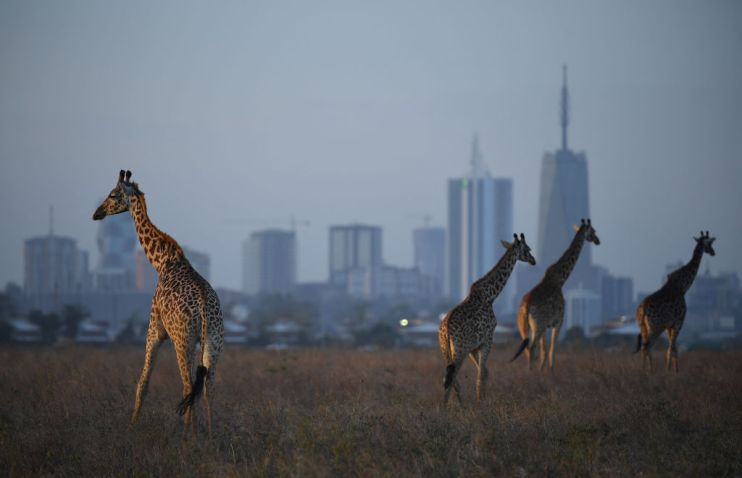With Brexit done, the UK must pivot to Africa

Divorce is painful, and Brexit was as acrimonious a separation as they come. Anglo-European relations will recover in time, but right now the UK needs friends outside of Europe.
Boris Johnson knows this, so it was no surprise when he declared his ambition for the UK to be Africa’s investment partner of choice.
“We in Britain have much to learn from the ingenuity, energy and ambition of African entrepreneurship and wealth creation. Africa is the future,” he told Wednesday’s UK- Africa Investment Conference.
Read more: How UK business leaders can help Covid-hit female entrepreneurs in Africa
He is absolutely right. As the UK and Africa seek to bounce back from the impact of the COVID-19 pandemic, there has perhaps never been a better opportunity to create closer ties and kickstart growth.
All sectors of UK business can benefit from closer ties with the region, but they can look to the fintech industry for a model. Our multi-billion pound sector has been doing business across the continent for years, bringing prosperity and financial inclusion to millions of people.
Half of the world’s top 10 growing economies are in Africa and digital adoption is soaring across the continent. Nigeria alone has over 100 million internet users, and over 80% of them connect using a mobile device. This is truly a mobile-first market, giving UK companies enormous potential to connect directly to consumers.
Remittance providers are ahead of the curve here, and digital money transfer companies like Azimo already handle billions of dollars in payments to African recipients from migrant workers in the UK. These payments are a crucial lifeline to developing economies, especially in the absence of government support during the COVID-19 pandemic.
The first remittance payment often brings the recipient onto the “financial grid” for the first time. This creates new markets for other financial services and gives ever more African citizens access to life-changing tools: savings accounts, business loans, pensions and insurance against adverse events.
But it is not only British businesses who benefit. Partnerships with local providers such as Kenya’s M-Pesa create opportunities on both sides. Over 95% of Azimo’s payments to Kenya arrive instantly to M-Pesa mobile wallets. M-Pesa is a striking example of African technology innovation. They were years ahead of Europe in developing mobile payments. British companies should be quick to recognise where their African counterparts have the technical edge.
Role of China
While much is made of greater cooperation with Asia, and particularly China, it is worth remembering that China itself is looking to Africa for growth. Trade between the two was worth nearly £150 billion in 2019. With just £34 billion in annual trade with Africa, the UK lags behind. Yet it enjoys a number of competitive advantages over Asian rivals.
First is a common timezone. Trading hours in the UK are similar to much of Africa, making cooperation and trade during business hours much easier.
Second is a common language. English is the most widely spoken language in Africa, with around 700 million non-native speakers.
Third and most important is the growing African diaspora in the UK and the deep cultural bonds this migration forms. There are nearly 1.5 million African-born people living in the United Kingdom, many of whom send money back to their country of origin. More Africans bring their ingenuity and entrepreneurship to this country every year. We should encourage and invest in nurturing this talent.
If Boris Johnson is serious about his ambitions for the UK’s trade relationship with Africa, he would do well to back up his words with investment and pro-trade policies. Without them, the UK will miss a golden opportunity to partner with the world’s next economic powerhouse.
Read more: Chancellor says City is on cusp of Big Bang 2.0